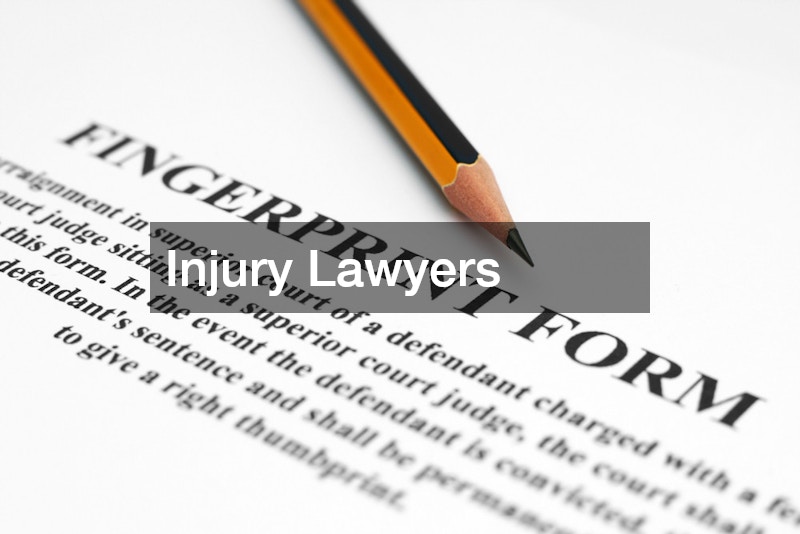Navigating the complex world of legal systems can be daunting for many individuals. Lawsuits and litigations span a vast range of scenarios, from criminal cases to civil disputes. To effectively handle these myriad legal challenges, one needs the expertise of different specialized legal practitioners. This article delves into the types of litigations that exist and highlights the roles of various legal professionals such as criminal defense lawyers, car accident lawyers, and real estate attorneys, among others. By understanding the specific functions of these attorneys and the types of litigations they tackle, individuals can make informed choices about legal representation that best fits their specific needs. The importance of recognizing the right attorney for the right type of litigation cannot be overstated, as the legal framework can significantly influence the outcome of any legal confrontation. Whether dealing with crime-related issues or personal injury claims, each litigation type demands a tailored legal approach. This article aims to demystify these complexities and provide a comprehensive guide to understanding types of litigations and finding the right legal support.
Criminal Defense Lawyers
Criminal defense lawyers play a crucial role in the judicial system by representing individuals accused of committing crimes. They are involved in cases ranging from minor infractions to serious felonies. The types of litigations handled by criminal defense lawyers include defending charges of theft, assaults, drug offenses, and more severe crimes like murder. Each type of charge requires a detailed understanding of state and federal laws. Criminal defense lawyers strive to ensure that the defendant’s rights are protected throughout the legal process, which includes investigations, plea bargains, trials, and appeals.
The expertise of criminal defense lawyers extends beyond mere representation in court. They are skilled negotiators who often work to reduce charges or secure favorable plea deals for their clients. They meticulously analyze evidence, identify inconsistencies, and create defense strategies tailored to the specific circumstances of each case. This is particularly important when dealing with complex types of litigations, where the stakes are high and the consequences of a conviction can be severe. This underscores the necessity for a sturdy defense prepared by adept criminal attorneys.
In addition to defending clients in court, criminal defense lawyers offer crucial advisory services. They guide clients on legal rights and navigational strategies in judicial processes. Such advisory elements are vital, especially for clients who may not fully comprehend types of litigations or the legal intricacies of their cases. A criminal defense lawyer thus acts as both a shield and a compass, guiding clients through the daunting maze of criminal law with the aim of ensuring justice is served.

Criminal Attorneys
Criminal attorneys, encompassing a category of legal professionals, focus specifically on cases that involve criminal activities. Unlike general practitioners, criminal attorneys are deeply immersed in the nuances of criminal law and procedure. These lawyers are tasked with an array of duties, including consulting, negotiating, and litigating on behalf of individuals accused of crimes. Their expertise can make a significant difference in the outcomes of various types of litigations related to criminal offenses.
The scope of crimes addressed by criminal attorneys is extensive. It ranges from traffic violations and white-collar crimes to violent offenses such as robbery and homicide. With different types of litigations emerging under criminal law, the approach undertaken by criminal attorneys must be multifaceted and adaptable. They need to be well-versed in both statutory law and case law, ensuring that their defense strategies are backed by thorough legal acumen.
Moreover, criminal attorneys are instrumental in advising their clients through pre-trial, trial, and post-trial processes. Understanding the intricacies of types of litigations is essential, as criminal cases often involve plea bargaining and settlement discussions. The emotional and psychological support provided by a criminal attorney is equally invaluable, as facing criminal charges can be a distressing experience for clients. Through diligent representation and compassionate counsel, criminal attorneys uphold the pillars of justice.
Car Accident Lawyers
Car accident lawyers specialize in cases involving vehicular accidents, representing clients who have sustained injuries or property damage as a result of such incidents. These cases often entail complex negotiations with insurance companies and, when necessary, litigations in court. The types of litigations typically handled by car accident lawyers include personal injury claims, property damage disputes, and wrongful death lawsuits. Their goal is to ensure that victims receive fair compensation for their losses and suffering.
In navigating the aftermath of a car accident, car accident lawyers play a pivotal role in gathering and preserving evidence. This may include witness statements, police reports, and medical records that substantiate the extent of the injury and damages incurred. Car accident lawyers are adept at piecing together these details to construct compelling cases. Their proficiency in understanding the types of litigations associated with vehicular incidents enables them to advocate effectively for their clients’ rights.
Furthermore, car accident lawyers serve as guides for clients as they navigate the legal and insurance processes. They clarify legal jargon and procedures, making the claims process more accessible to those who are unfamiliar with it. Their expertise in different types of litigations ensures that all avenues for recourse are explored. In doing so, car accident lawyers not only aim to secure financial recompense but also facilitate the client’s recovery journey.

Injury Lawyers
Injury lawyers, also known as personal injury attorneys, concentrate on cases where an individual suffers harm due to another’s negligence or wrongdoing. These cases range from slip-and-fall accidents to medical malpractice and defective product incidents. The types of litigations handled by injury lawyers can be particularly intricate, involving multiple parties and complicated evidence. Their primary objective is to secure compensation for medical expenses, lost wages, and pain and suffering.
To achieve this, injury lawyers meticulously investigate their cases, collecting evidence that includes medical records, expert testimonies, and incident documentation. They must demonstrate the liability of the defendant and the extent of the damages their clients have sustained. Understanding the types of litigations involved in personal injury is critical, as each case must be approached with a unique strategy tailored to the circumstances and legal requirements.
In addition to litigation, injury lawyers play a crucial role in negotiating settlements out of court. This often requires skillful negotiation tactics to ensure fair compensation without the need for a lengthy trial. By leveraging their understanding of the types of litigations, injury lawyers aim to achieve the best possible outcomes for their clients, alleviating both financial and emotional burdens resulting from personal injuries.
Local Divorce Lawyers
Local divorce lawyers specialize in family law, focusing on the legal dissolution of marriages. Divorce proceedings can be emotionally charged and complex, involving the division of assets, spousal support, and child custody arrangements. The types of litigations overseen by local divorce lawyers extend beyond just the separation process; they may also include handling domestic violence issues and pre-nuptial agreements. Their role is to ensure that their clients’ rights and interests are upheld throughout the divorce proceedings.
A fundamental aspect of a divorce lawyer’s responsibilities is guiding clients through the often convoluted legal system. This involves educating them about their rights and the implications of their decisions regarding division of property, child support, and custody. Their knowledge of the different types of litigations associated with divorce ensures that clients receive comprehensive legal support tailored to individual circumstances.
Furthermore, local divorce lawyers are extensively involved in mediation and arbitration, aiming to resolve disputes amicably when possible. They endeavor to negotiate settlements that minimize conflict and foster cooperation between parties. By understanding the various types of litigations inherent in divorce cases, local divorce lawyers help clients find effective solutions that can lead to amicable resolutions and a smoother transition to life post-divorce.

Custody Attorneys
Custody attorneys, a subset of family law practitioners, focus on child custody cases, advocating for the best interests of the child. Their work often involves mediating between parents and representing their clients during custody hearings. The types of litigations that custody attorneys tackle include disputes over physical custody, legal custody, and visitation rights. Their primary focus is to ensure that the custody arrangements reflect what is most beneficial for the child involved.
Navigating custody disputes requires sensitivity and an in-depth understanding of family dynamics. Custody attorneys employ their knowledge of the law to resolve disagreements either through mediation or litigation. It is crucial for them to understand the underlying types of litigations involved, as these cases can have lasting impacts on family relationships and the child’s well-being. They aim to minimize conflict and establish stable, nurturing environments for the child.
In addition to courtroom representation, custody attorneys provide ongoing support during the negotiation process. This includes drafting parenting plans, filing necessary legal documents, and advocating for their clients during negotiations or mediations. Their expertise in the various types of litigations ensures that their clients’ parental rights are preserved and that the resultant custody arrangements are conducive to the child’s overall welfare.
Bankruptcy Attorneys
Bankruptcy attorneys specialize in financial law, assisting both individuals and businesses in navigating the bankruptcy process. These legal professionals handle types of litigations related to Chapter 7, Chapter 11, and Chapter 13 bankruptcies, among others. Their primary role is to help clients manage overwhelming debt, protect assets, and work towards financial recovery.
The expertise of bankruptcy attorneys includes providing legal advice on the most suitable type of bankruptcy filing, preparing necessary documentation, and representing clients in court proceedings. They must be adept at interpreting bankruptcy laws and understanding the intricacies of different types of litigations that can arise from financial difficulties. This involves negotiating with creditors and advocating for favorable repayment plans or discharge of debts.
Bankruptcy attorneys also offer crucial guidance throughout the bankruptcy process, helping clients rebuild their future financial stability. This includes counseling on budgeting, credit repairs, and financial risk management. By understanding the diverse types of litigations involved, bankruptcy attorneys play a vital role in helping individuals and businesses emerge from financial distress and regain control over their financial futures.

Criminal Defense Attorney
Within the realm of criminal law, a criminal defense attorney acts as a formidable ally for clients accused of criminal conduct. These attorneys are integral to ensuring the fairness and integrity of the criminal justice process. The types of litigations handled by criminal defense attorneys span misdemeanors, felonies, and federal crimes. Their essential task is to defend the constitutional rights of their clients while seeking the best possible outcomes for their cases.
The responsibilities of a criminal defense attorney include preparing compelling defenses, negotiating plea deals, and representing the accused in court. These lawyers must excel in various types of litigations, as the complexity and nature of criminal cases demand keen strategic planning and legal acumen. The ability to interpret and challenge evidence is a key aspect of their role, often making the difference between a guilty verdict and an acquittal.
Beyond trials, criminal defense attorneys offer invaluable consultation and support, ensuring clients understand the charges against them and the potential consequences. This educational component is crucial, especially for those who may be unfamiliar with the legal system. Through a profound understanding of various types of litigations, criminal defense attorneys strive to secure justice and create a balanced defense for their clients.
Real Estate Attorney
Real estate attorneys specialize in property law, dealing with transactions, disputes, and litigation concerning real property. The types of litigations they handle can vary widely, including boundary disputes, landlord-tenant conflicts, and issues surrounding zoning and land use. Their primary role is to provide legal guidance to ensure property transactions are conducted smoothly and legally, safeguarding the interests of their clients.
The work of a real estate attorney involves drafting and reviewing contracts, conducting title searches, and ensuring compliance with state and local laws. Their expertise in the nuances of real estate law is essential to prevent and resolve disputes. Understanding the types of litigations associated with real estate is critical for these attorneys, as they must navigate complex regulatory environments and mitigate potential legal pitfalls.
In addition to transactional support, real estate attorneys offer representation in litigation arising from real estate dealings. This could involve representing clients in court over failed transactions or property disputes. By understanding and addressing the various types of litigations, real estate attorneys provide clients with the comprehensive legal protection needed for acquiring, selling, or managing real property.

Personal Injury Attorney
Personal injury attorneys focus on representing individuals who have been injured physically or psychologically due to the negligence or wrongdoing of another. These cases often involve motor vehicle accidents, workplace injuries, and medical malpractice. The types of litigations handled by personal injury attorneys include filing claims for compensatory damages and, when warranted, punitive damages.
To succeed in personal injury cases, attorneys must conduct thorough investigations to establish negligence and liability. This involves collecting evidence such as medical reports, eyewitness accounts, and expert testimony. An in-depth understanding of the types of litigations involved is necessary, as each case type demands a customized legal strategy. This knowledge enables personal injury attorneys to navigate the complexities of personal injury law effectively.
Moreover, personal injury attorneys are adept negotiators, often settling cases out of court to avoid lengthy trials. They focus on securing settlements that adequately cover their clients’ medical costs, lost wages, and other damages. By leveraging their expertise in various types of litigations, personal injury attorneys strive to achieve outcomes that foster their clients’ recovery and provide financial peace of mind during challenging times.
The legal landscape is vast and filled with a myriad of intricacies that can be overwhelming without the assistance of a qualified attorney. Each area of law requires different specializations, underscoring the importance of selecting the right legal representative from a diverse range of professionals including criminal defense lawyers, car accident lawyers, and real estate attorneys, among others. As showcased in this comprehensive exploration, types of litigations vary significantly across legal domains, necessitating specific knowledge and experience to effectively navigate the legal system. Choosing the correct attorney can dramatically influence the resolution of legal disputes, ensuring that a person’s rights are upheld and the best possible outcome is achieved. Whether dealing with bankruptcy, personal injury, or family law issues, each type of litigation possesses unique challenges and demands a thorough understanding by the attorney involved. By recognizing the nuances of each type of litigation, individuals can better secure their futures and mitigate the complexities that accompany legal proceedings. In essence, the pathway to effective legal resolution lies in aligning one’s needs with the expertise of the appropriate attorney capable of delivering results in an ever-evolving legal environment.






